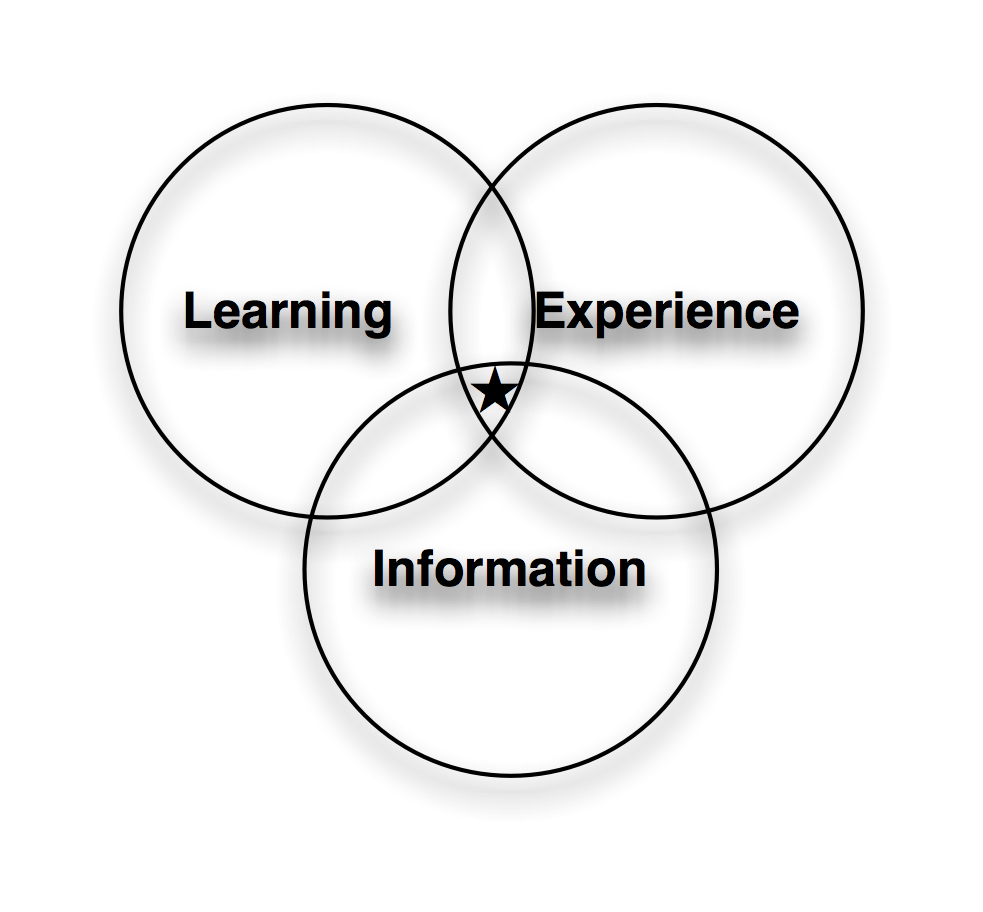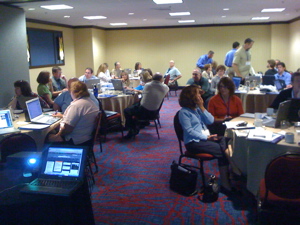In my recent workshop, an attendee shared a story that I have to pass along. He works for a company that serves a sector of the marketplace that has been core to US business, and is now in tough times. Naturally, the employees are concerned about the prospects.
The CEO is sharing, via a blog, his ongoing thoughts on dealing with the issue. Rather than puff pieces for external readers, written by a PR hack, he’s writing authentically for internal consumption about where his thinking is going and what he and the executive team are doing. He’s not making false promises, and the employee was very clear that there are no clear answers yet, but they’ve insight into how deep the thought processes have been about the situation, and how earnestly (and cleverly) they’re working on solving the issue. He’s even sharing the questions he’s considering. While all the comments aren’t visible, anyone can provide input and the CEO can react. This is powerful.
I’ve mentioned before that providing a ‘leading out loud’ record for people to follow is a great mechanism to foster virtual mentorship and share directions, and this is a really valuable way for organizations to communicate. As Rae Tanner discussed with me yesterday as we walked around DC before the start of the ASTD main conference, imagine an organization where everyone was onboarded with a real understanding of the business (we thought a game would be appropriate), and then were able to follow the ongoing thinking. Do you think they’d be better equipped to execute, and, better yet, contribute to organizational success? Certainly if it was coupled with a learning culture and rewards aligned with the desired behaviors.
The worskhop attendees easily ‘got’ the value of this scenario; that CEO knows what leadership is about, and is manifesting it in a visionary way. This is what technology can facilitate. Technology is a tool, but one that provides new affordances for communication and collaboration. The opportunities to improve things individual, organizationally, and societally are awe-inspiring. Now we need to seize the initiative and make really worthwhile things happen. Are you game?
 However, the community of practice will be responsible for collaboratively developing the content and resources, and the training department will have morphed into learning facilitators: refining the learning, information, and experience design around the community-established content, and also facilitating the learning skills of the community and it’s members. The learning facilitators will be monitoring the ongoing dialog and discussions, on the lookout for opportunities to help capture some outcomes, and watching the learners to look for opportunities to develop their abilities to contribute. They’ll also be looking for opportunities to introduce new tools that can augment the community capabilities, and create new learning, communication, and collaboration channels.
However, the community of practice will be responsible for collaboratively developing the content and resources, and the training department will have morphed into learning facilitators: refining the learning, information, and experience design around the community-established content, and also facilitating the learning skills of the community and it’s members. The learning facilitators will be monitoring the ongoing dialog and discussions, on the lookout for opportunities to help capture some outcomes, and watching the learners to look for opportunities to develop their abilities to contribute. They’ll also be looking for opportunities to introduce new tools that can augment the community capabilities, and create new learning, communication, and collaboration channels.
 What I didn’t do was use the mouse properly. I had a wrist rest that I used while mousing, not just in-between. I’ve got pain in my right wrist now. I thought I might’ve broken it snowboarding or skateboarding, but it was x-rayed and that wasn’t the issue. Referred to a physical therapist, it appears to just be overuse again (maybe a
What I didn’t do was use the mouse properly. I had a wrist rest that I used while mousing, not just in-between. I’ve got pain in my right wrist now. I thought I might’ve broken it snowboarding or skateboarding, but it was x-rayed and that wasn’t the issue. Referred to a physical therapist, it appears to just be overuse again (maybe a